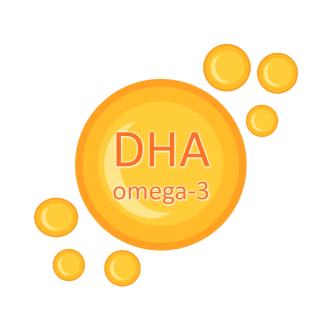
Sleep apnea, a prevalent and potentially serious sleep disorder characterized by repeated interruptions in breathing during sleep, affects millions of individuals worldwide. Traditionally, the primary risk factors identified for sleep apnea have included obesity, anatomical anomalies of the upper airway, genetic predisposition, and lifestyle factors such as smoking and alcohol consumption. However, recent scientific investigations have opened up a novel avenue of understanding, suggesting that nutritional deficiencies may play a significant role in the onset and exacerbation of sleep apnea. This article aims to provide an in-depth exploration of the potential link between nutritional deficiencies and sleep apnea, offering a comprehensive review of the current evidence and its implications for clinical practice.
Understanding Sleep Apnea
To contextualize the discussion, it is essential to understand the pathophysiology of sleep apnea. The disorder is primarily divided into two types: obstructive sleep apnea (OSA) and central sleep apnea (CSA). OSA, the more common form, occurs due to the physical blockage of the upper airway, often as a result of soft tissue collapse. CSA, on the other hand, involves the central nervous system failing to signal the muscles to breathe. Both types lead to fragmented sleep, reduced oxygen levels in the blood, and increased stress on the cardiovascular system.
The Nutritional Deficiency Hypothesis
Emerging research has begun to highlight the importance of specific nutrients in maintaining respiratory health and neuromuscular function, both critical for preventing sleep apnea. This article delves into several key nutrients, examining how their deficiencies could potentially contribute to sleep apnea:
- Vitamin D: Often referred to as the "sunshine vitamin," Vitamin D is crucial for bone health, immune function, and inflammatory regulation. Recent studies suggest that Vitamin D deficiency may be linked to an increased risk of sleep apnea. This is thought to be due to its role in maintaining muscle tone and reducing inflammation in the upper airway.
- Magnesium: This essential mineral is vital for muscle function, including the muscles involved in breathing. Magnesium deficiency can lead to muscle weakness and spasms, which may compromise the patency of the airway during sleep. Additionally, magnesium has a calming effect on the nervous system, promoting better sleep quality.
- Omega-3 Fatty Acids: Found in high concentrations in fish oil, Omega-3 fatty acids are known for their anti-inflammatory properties. Inflammation of the airway is a significant contributor to OSA, and a deficiency in these fatty acids may exacerbate this condition. Omega-3s also play a role in regulating sleep-wake cycles.
- B Vitamins: These vitamins are essential for energy metabolism and neurological function. Deficiencies in B vitamins, particularly B6 and B12, can affect the central nervous system's ability to regulate breathing during sleep, potentially contributing to CSA.
- Antioxidants: Nutrients such as Vitamin C and E help to reduce oxidative stress, which is elevated in individuals with sleep apnea. Oxidative stress can lead to inflammation and damage to the tissues of the airway, worsening the condition.
Mechanisms of Influence
The mechanisms by which nutritional deficiencies may contribute to sleep apnea are multifaceted. For instance, a deficiency in Vitamin D may lead to increased upper airway collapsibility due to reduced muscle tone and heightened inflammation. Magnesium deficiency could result in neuromuscular dysfunction, impacting the coordination of muscles required for maintaining an open airway. Omega-3 fatty acids, by reducing systemic inflammation, may help to keep the airway clear during sleep. Furthermore, deficiencies in B vitamins could disrupt the brain's control of breathing, leading to central apneas.
Implications for Treatment and Management
Understanding the role of nutritional deficiencies in sleep apnea opens up new possibilities for treatment and management. Traditionally, treatment for sleep apnea has focused on continuous positive airway pressure (CPAP) therapy, lifestyle modifications, and, in some cases, surgical interventions. However, addressing underlying nutritional deficiencies presents a complementary approach that could enhance these treatments' effectiveness.
Practical Recommendations
The article provides practical dietary recommendations and supplementation strategies aimed at mitigating sleep apnea symptoms through improved nutrition. These include:
- Increasing Sun Exposure and Vitamin D Intake: Encouraging moderate sun exposure and consuming foods rich in Vitamin D, such as fatty fish, fortified dairy products, and eggs, or considering Vitamin D supplements.
- Boosting Magnesium Levels: Incorporating magnesium-rich foods like nuts, seeds, leafy greens, and whole grains into the diet, or using magnesium supplements under medical supervision.
- Enhancing Omega-3 Intake: Consuming more fatty fish, flaxseeds, and walnuts, or taking fish oil supplements.
- Ensuring Adequate B Vitamin Intake: Eating a balanced diet that includes whole grains, meats, dairy products, and leafy greens, or taking a B-complex vitamin supplement if necessary.
- Incorporating Antioxidants: Eating a diet rich in fruits and vegetables to boost antioxidant levels, potentially supplemented with Vitamins C and E.
Conclusion
By shedding light on the potential link between nutritional deficiencies and sleep apnea, this article aims to foster a holistic understanding of the condition. It underscores the importance of a well-rounded, nutrient-rich diet in maintaining respiratory health and preventing sleep disorders. Health professionals and individuals affected by sleep apnea may find valuable insights into how nutritional interventions could complement traditional treatments, potentially leading to better outcomes and enhanced overall well-being. The emerging paradigm that positions nutritional deficiency as a contributing factor to sleep apnea not only broadens the scope of treatment but also emphasizes the integral role of nutrition in sleep health.






